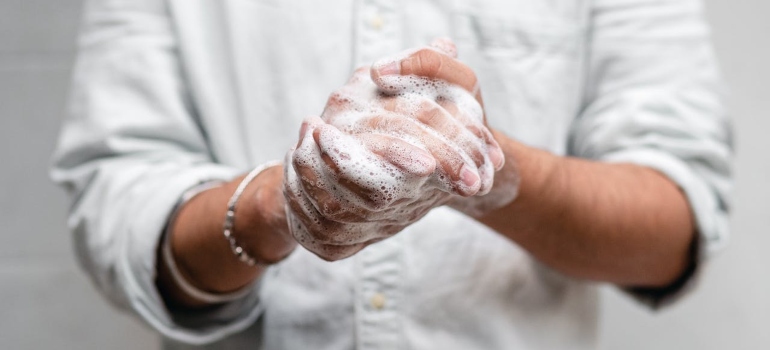To support a loved one living with OCD can be both rewarding and challenging. Obsessive-compulsive disorder (OCD) is a complex mental health condition marked by persistent, intrusive thoughts (obsessions) and repetitive behaviors (compulsions) that an individual feels driven to perform. The struggles someone with OCD faces go beyond surface-level behaviors and impact daily life in significant ways. By understanding their experience and learning practical ways to help, you can make a real difference. Here, we’ll explore how to provide meaningful support and foster an environment of compassion and patience.
Understanding OCD: Basic Facts and Misconceptions
In the past year, an estimated 1.2% of individuals in the United States had OCD. OCD was more common in women (1.8%) than in men (0.5%.) The disorder is often misunderstood. Contrary to popular belief, it isn’t just about being tidy or organized. People with OCD experience distressing obsessions that can include fears of contamination, doubts, or intrusive thoughts, leading to compulsive actions aimed at reducing anxiety. These compulsions can vary widely, from washing and checking to arranging and counting. It’s important to understand that OCD is a mental health disorder, not a choice or preference. Dismissing it as a need for cleanliness or order minimizes the struggles those affected go through daily.

Here are some of the most common OCD misconceptions:
- It’s all about cleanliness or order: OCD can include many obsessions unrelated to cleanliness, like fears of causing harm or making mistakes.
- People with OCD can “just stop” if they try hard enough: OCD is a deeply ingrained disorder that often requires professional intervention.
- OCD is a personality trait: It’s a diagnosable mental health condition, not a quirky characteristic.
11 Ways to Support a Loved One Living with OCD
Supporting someone with OCD might seem overwhelming, but here are 11 actionable ways to offer real help and make a positive impact.
Educate Yourself About OCD
Educating yourself about OCD is one of the most valuable ways to support someone dealing with it. OCD isn’t just a set of behaviors; it’s a complex condition deeply tied to anxiety, and understanding it requires a bit of research. Start by exploring resources like books, mental health websites, or guidance from mental health professionals. Obsessive-compulsive disorder treatment options can vary, with some approaches more effective for certain people than others.
One useful approach is learning about therapies such as Cognitive Behavioral Therapy (CBT) and Exposure and Response Prevention (ERP), which are commonly used in treating OCD. Knowing the basics of these treatments helps you encourage and support them if they choose to pursue professional help. Harmony Ridge Recovery Center offers insights into these therapies and can be a resource for finding effective support.
Recognize and Respect Their Boundaries
Boundaries are very important when it comes to supporting someone with OCD. People with OCD often set boundaries to protect themselves from triggers, and respecting these boundaries is essential for building trust. Some topics, activities, or even places can trigger anxiety and make their symptoms worse. Recognizing these limits without pushing them to confront or discuss triggers they’re not ready to face is a compassionate approach.

For instance, if they’re uncomfortable talking about specific compulsions, don’t press them for details. Similarly, avoid bringing up OCD unless they’re open to discussing it. You might also ask if they’re open to discussing particular strategies or if they need time before you bring up any potential coping mechanisms. Respecting boundaries includes:
- Asking permission before discussing topics related to OCD.
- Recognizing when they prefer solitude to manage their emotions.
- Offering support without crossing any limits they’ve set.
Avoid Enabling Compulsions
It’s natural to want to help ease your loved one’s anxiety by assisting with their compulsions, but this can unintentionally reinforce their OCD behaviors. Enabling compulsions often gives temporary relief but ultimately strengthens the cycle of obsessions and rituals. Instead of participating in compulsions, try suggesting other ways to cope or redirecting their attention to healthier activities.
For example, if they ask you to help them check if a door is locked, consider gently reminding them to try a breathing exercise or another calming activity instead. Reinforcing alternative habits not only helps them manage their OCD in healthier ways but also shows your support without reinforcing compulsions. Alternatives to enabling:
- Encourage relaxation techniques, such as deep breathing or grounding exercises.
- Suggest distractions, like going for a walk, reading, or watching a movie together.
- Let them know you’re there to support them without participating in rituals.
Encourage Professional Help
OCD often requires professional help to manage effectively. Treatments like Cognitive Behavioral Therapy (CBT) and Exposure and Response Prevention (ERP) have been shown to reduce OCD symptoms significantly. Encouraging them to seek therapy can be one of the most supportive actions you take, but it’s important to approach this topic with sensitivity. They might feel apprehensive or hesitant about therapy, especially if it involves facing their fears.
If they’re open to it, offer to help them research local therapists or centers, such as Harmony Ridge Recovery Center, that specialize in OCD treatment. Remember, professional help is available for everyone, but your loved one needs to feel ready and supported in taking that step. Therapy can also address co-occurring conditions like anxiety or depression, as mental health in young adults is often complicated by multiple issues.

Encouraging therapy, without pressuring them, helps them feel supported and in control of their own recovery journey. With time, they may come to see the benefits of individual and group therapy, each offering a different type of support and perspective.
Be Patient and Non-Judgmental to Support a Loved One Living with OCD
Patience is crucial when supporting someone with OCD. Managing OCD is rarely a straightforward process, and there will likely be setbacks along the way. It can be tempting to encourage them to “just stop” or “try harder,” but these comments, even when well-meaning, can feel dismissive or hurtful. Instead, focus on listening and providing reassurance without judgment.
If they experience a difficult day, remind them that setbacks are a normal part of managing OCD. You can be a powerful source of encouragement by validating their experiences. When they feel that you’re supportive without judgment, they’re more likely to be open and honest with you. Ways to be patient and non-judgmental:
- Use open, empathetic phrases like, “I’m here for you,” or “I understand this is difficult.”
- Avoid dismissive statements, even if intended to encourage.
- Listen fully without offering unsolicited advice.
Help Them Develop and Stick to a Routine
People with OCD often find comfort in routines, as they provide a sense of structure and control. However, routines shouldn’t reinforce compulsive behaviors. You can encourage routines that focus on healthy activities, like exercise, hobbies, or self-care practices that don’t center on compulsions.
For instance, if they enjoy painting, suggest setting aside time each day to explore their creativity as a means of relaxation. Therefore, reflecting inner thoughts through art therapy is a powerful way for some people with OCD to process their emotions without relying on rituals. You could also help them establish a daily schedule that includes fulfilling activities, and promoting a sense of accomplishment without worsening compulsive behaviors.

A routine based on positive habits can offer stability and reduce anxiety, allowing them to focus on things they enjoy instead of being dominated by OCD-driven routines.
Encourage Self-Care and Stress Management
Self-care is a powerful tool in managing OCD symptoms, as stress and anxiety often worsen compulsions and obsessions. Encouraging them to adopt healthy self-care practices, such as mindfulness exercises, yoga, or spending time outdoors, can make a noticeable difference in their overall well-being. Joining them in these activities can also be a bonding experience and an opportunity to show your support.
Another idea is suggesting activities that focus on relaxation, like deep-breathing exercises or light stretching. When stress levels are managed, the severity of OCD symptoms may decrease, making it easier for them to break the cycle of obsessions and compulsions. Self-care activities to explore together:
- Going for nature walks
- Practicing mindfulness exercises like meditation or breathing exercises
- Engaging in hobbies or creative outlets that reduce stress without triggering OCD symptoms
Create an Open, Safe Space for Communication
Open communication is necessary for any supportive relationship, especially when dealing with OCD. When your loved one feels that they can share their thoughts and fears without judgment, they’re more likely to open up about their struggles. Avoid giving advice unless they specifically ask for it, and instead, focus on listening and validating their experiences.
Listening to them without judgment creates a space where they feel truly heard and understood. They might not always want advice; sometimes, they just need to express their fears and frustrations. Letting them talk without interruption is one of the simplest yet most powerful ways to provide support. Here is how to create a safe space for communication:
- Actively listen without interrupting with advice
- Acknowledge their feelings by saying things like, “That sounds difficult; I’m here for you”
- Assure them that they can talk openly whenever they need to.

Know When to Seek Outside Support
Supporting someone with OCD can be emotionally draining, and it’s necessary to recognize when you, as a caregiver, may need support too. Sometimes, the demands of supporting someone with OCD can be overwhelming, and seeking outside help, like therapy or support groups for family members, can be highly beneficial. Family and friends of people with OCD can join support groups or speak with a therapist who understands the unique challenges they face.
Additionally, if your loved one has other co-occurring conditions, exploring options like a dual diagnosis program can provide the specialized care they may need. Sometimes OCD symptoms intensify, and having a professional available to step in can make all the difference. Harmony Ridge Recovery Center offers dual diagnosis resources to address the unique needs of individuals with multiple mental health challenges.
Remember, it’s okay to seek help when needed. Caring for your loved one doesn’t mean sacrificing your own well-being.
Celebrate Small Wins Together
In managing OCD, every small step forward is worth celebrating. Celebrating these achievements, no matter how minor they may seem, provides encouragement and helps your loved one stay motivated. Whether it’s resisting a compulsion for a day or successfully completing a therapy session, recognizing these milestones reinforces their progress.
A simple way to celebrate could be spending quality time together, such as enjoying a meal or planning a fun outing. The gesture doesn’t need to be grand; the act of acknowledging their progress is often enough. Make sure celebrations don’t add pressure; keep things low-key to avoid triggering anxiety. Simple celebration ideas:
- Plan a casual day out, like a picnic or coffee date.
- Send them a heartfelt message or card recognizing their progress.
- Watch their favorite movie or TV show together.
Encourage Flexibility and Self-Compassion
Living with OCD is challenging, and it’s common for individuals to experience setbacks along the way. Encourage your loved one to embrace flexibility and self-compassion, as these qualities help prevent frustration or self-blame. Remind them that progress doesn’t have to be perfect and that everyone’s journey with OCD is different. Self-compassion is key, as it helps them view themselves with understanding and patience rather than judgment.
One helpful approach may be encouraging them to explore how to prepare for psychotherapy, which can help them feel ready to face challenges in treatment.

In addition, they might benefit from learning about the main points of Dialectical Behavior Therapy, which focuses on managing difficult emotions and developing skills for emotional resilience.
Your Guide to Meaningfully Support a Loved One Living with OCD
Supporting a loved one living with OCD requires patience, empathy, and a genuine commitment to understanding their unique needs. By following these 11 strategies, you can create a compassionate and constructive environment that helps them feel valued and understood. Educating yourself, respecting their boundaries, encouraging healthy routines, and celebrating small victories all contribute to a meaningful way to support a loved one living with OCD. Each step you take reassures them and empowers them on their journey. Remember, even the smallest gestures of support can make a significant difference in their life, giving them strength and comfort as they navigate their path.
Reference:
https://www.nimh.nih.gov/health/statistics/obsessive-compulsive-disorder-ocd



